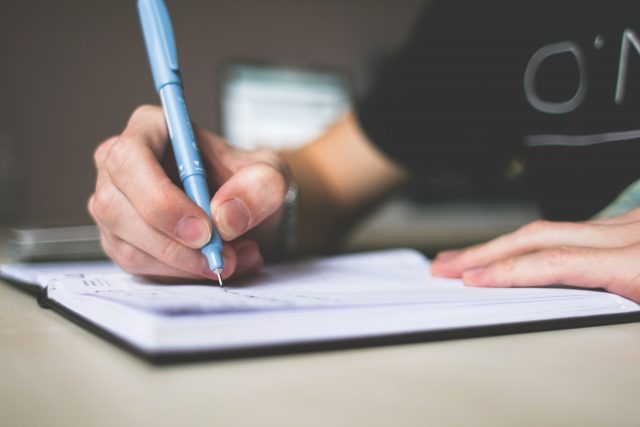While there are a great many resources to help and aid you in your recovery journey, the ultimate decision rests with you. A Scientific American article points out the following:
"But some in the field point out that many if not most addicts successfully recover without professional help. A survey by Gene Heyman, a research psychologist at McLean Hospital in Massachusetts, found that between 60 to 80 percent of people who were addicted in their teens and 20s were substance-free by their 30s, and they avoided addiction in subsequent decades. Other studies on Vietnam War veterans suggest that the majority of soldiers who became addicted to narcotics overseas later stopped using them without therapy."
https://www.scientificamerican.com/article/can-you-cure-yourself-of-addiction/
Again, there is no shame in seeking professional help or looking to other avenues for assistance in your recovery process. Below are some helpful concepts to keep in mind at this stage in your sobriety journey.
Drug and alcohol, as well as other types of addiction, are always rooted in some behavioral causes. This can be anything from a past trauma or experience, stress, the need for escapism because of environmental factors, depression, an addictive personality, or nearly any other variable you can think of. Identifying the source of your addiction is the first step to sobriety. Therapists can often assist with this process.

Talking to experts in the field of addiction recovery can greatly help you with your goal of sobriety.
There are many possible side effects of withdrawal, and some of them can be seriously dangerous or even deadly. Check with your physician or another expert about whether or not your recovery journey needs professional supervision.
It is essential when kicking an addiction to make value judgments about the positives and negatives of the behavior you are trying to avoid. Part of those value judgments can involve creating two lists: “reasons to use” and “reasons not to use”.
Fill out the first column with everything positive about using or engaging in the negative behavior - “It makes me feel good”, “it helps me sleep”, “it makes me productive”.
Fill out the second column with everything negative: “my addiction is hurting my family and I”, “my addiction is making me a different person”, “my addiction is killing me”. This is vital for the next step.

Being honest with yourself about the reasons you used drugs or alcohol in the past is a key step in recovery from addiction.
After preparing your lists, it is time to do some soul-searching. If you have been honest with yourself, you will quickly see that the benefits of substance abuse do not come close to outweighing the negatives. You will have to fall back on this value judgment daily during your path to recovery.
Friends, family, and even colleagues can all play an essential role in your recovery journey. Talk to your social group and tell them what you are going through (and if appropriate, what they can do to help you along the way). Try to find several contacts who you can call for support at any time if you need - group therapy programs will often assign “sponsors” who can be there at any time to help and support you.

Finding the right support from friends, family and peers can be extremely beneficial to your ultimate recovery.
This may not seem important to your recovery process, but it is. Wake up at a specific time. Go to sleep at one particular time, and take your meals at a specific time. The order and structure of your life can provide a powerful counteraction to the chaos that addiction brings.
No addiction, from sugar to heroin and everything in between, is managed without defeating cravings. Cravings are not voluntary. A craving is caused by your brain seeking to acquire more of something provided by the habit you’re kicking.
Cravings can be triggered by stress, a lack of sleep, unhappiness, pain (emotional or physical), an association with a person, place or thing, a smell, a memory, or any other number of stimuli. They can often be very intense, but the intensity fades quickly. Your cravings will be strongest at the very beginning of your abstinence and become weaker with time.

The initial urge to keep using drugs will go away with time.
How do we deal with cravings?
This is perhaps the most challenging part of recovery for many people. When the seemingly uncontrollable urge to use again arises, we must open our toolbox to fight it.
One such tool is “self-talk”. Remember the lists we made and the value judgment? Go over those again in your mind. Think about how much better your life will be clean. Think about how your addiction harms your friends and family, and even yourself. Think about the ground lost if you relapse and stay strong.
Another way to deal with cravings is to keep yourself busy. Clean your home, go for a jog, take out the trash. Occupy yourself mentally and physically, and you won’t have the time to focus and obsess over the substance of your desire.
Cognitive Behavioral Therapy is a potent tool to use in your journey. Cognitive Behavioral Therapy (referred to as CBT) allows you to identify and interrupt the patterns that lead to using and view things objectively and dispassionately. You can read more about CBT and addiction in one of our previous posts.
If your cravings become too intense to manage, call on your support group and talk it out with them. Friends and family may be able to pull you out of a negative mental state, and a sponsor from a group therapy class may be able to empathize and help you pull through your temptation.
As you continue down the path to recovery, you may relapse. You have not failed. You have only delayed success. Climb back onto that proverbial horse and try again. Identify factors that led to your relapse so that you may avoid them in the future. Expand your support network. Avoid people or places that lead to urges or cravings. Find professional help, if necessary. Your mental and physical health is worth it! While the decision to get clean is yours to make, you don’t have to fight that battle alone.